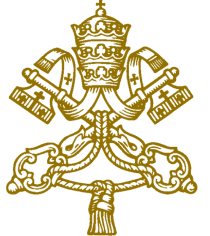
APOSTOLIC LETTER
ISSUED “MOTU PROPRIO”
OF THE SUPREME PONTIFF
FRANCIS
Competentias quasdam decernere
INTRODUCING CHANGES TO SOME NORMS OF THE CODE OF CANON LAW
AND THE CODE OF CANONS OF THE EASTERN CHURCHES
With a Motu proprio dated 11 February 2022, the Holy Father Francis transferred certain competencies, previously reserved to the Apostolic See, to the head of the Bishops (diocesan and eparchial) and Supreme Moderators regarding Institutes of Consecrated Life.
Among the most relevant changes affecting Institutes of Consecrated Life we highlight the following:
- The period of time allowed for a religious to remain outside his or her institute, the so-called indult of exclaustration, is extended up to five years, the extension of which is reserved to the Holy See or the Diocesan Bishop
- A temporary professed who for a serious cause asks to leave the institute and return to secular life may obtain the relative indult from the Supreme Moderator with the consent of the Moderator’s council.
- A decree of dismissal issued against a member of an institute of consecrated life takes effect the moment it is notified to the person concerned, provided that the right of the person concerned to appeal to the competent authority within 10 days of receiving the notification is indicated. Thus, it is no longer stipulated that the decree of dismissal must be confirmed by the Holy See for institutes of pontifical right or by the Diocesan Bishop in other cases.
APOSTOLIC LETTER
ISSUED “MOTU PROPRIO”
OF THE SUPREME PONTIFF
FRANCIS
MODIFYING THE TERMS OF RECOURSE
OF A MEMBER DISMISSED
FROM AN INSTITUTE OF CONSECRATED LIFE
In an apostolic letter in the form of a Motu proprio ("Expedit ut iura") dated 2 April 2023, the Pope decided to change the timeframe in which it is possible to appeal to the competent authority, in case of dismissal from Institutes of Consecrated Life: from ten days (fifteen, in the case of the Eastern Churches) to thirty days, “without the need to request in writing the revocation or correction of the decree from its author.” “A less restrictive modality of the terms of transmission of the appeal would allow the person concerned to be able to better evaluate the charges against him/her, as well as to be able to use more appropriate modes of communication.” The spirit of the Motu Proprio, which amends canon 700 of the Code of Canon Law (CIC) and canon 501 of the Code of Canons of the Eastern Churches (CCEO) is in order to ensure a more defined and adequate protection of the rights of persons who are dismissed from Institutes of Consecrated Life.

